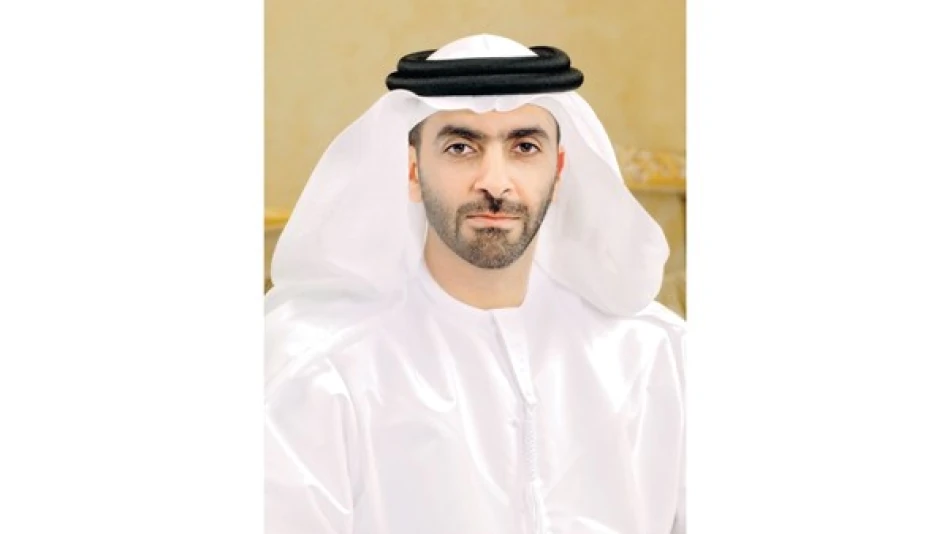
Emirati Official Elected to Interpol Asia Committee, Boosting UAE's Global Influence
UAE Breaks Gender Barriers as First Woman Wins Interpol Asia Committee Seat
The United Arab Emirates has achieved a historic milestone in international law enforcement, with Major Alya Al Kaabi becoming the first woman to secure a position on Interpol's Asia committee. Her victory with 53% of the vote signals the UAE's growing influence in regional security cooperation and reflects the nation's broader commitment to gender equality in leadership roles.
A Strategic Victory for UAE's Regional Ambitions
Sheikh Saif bin Zayed Al Nahyan, Deputy Prime Minister and Minister of Interior, announced Al Kaabi's groundbreaking appointment on social media, emphasizing how the achievement stems from "the wise leadership's guidance and empowerment of its sons and daughters." This victory represents more than symbolic progress—it positions the UAE as a key player in Asia-Pacific security architecture.
The 53% vote margin demonstrates strong regional confidence in UAE leadership capabilities, particularly significant given the competitive nature of Interpol committee positions. This win comes as the UAE continues expanding its soft power influence across Asia through strategic partnerships and security cooperation agreements.
Breaking the Glass Ceiling in International Policing
Gender Representation in Global Security
Al Kaabi's appointment addresses a critical gap in international law enforcement leadership. Women remain significantly underrepresented in senior Interpol positions globally, with most regional committees historically dominated by male representatives. Her selection reflects evolving attitudes toward gender diversity in security roles across Asia.
The UAE has systematically promoted women in security positions over the past decade, with female officers now comprising approximately 65% of police academy graduates. This domestic success story likely influenced regional partners' confidence in supporting Al Kaabi's candidacy.
Strategic Implications for Regional Security Cooperation
Combating Transnational Crime Networks
Sheikh Saif emphasized that the UAE "continues its efforts to enhance international police cooperation and establish integrated collaborative approaches to combat organized crime globally." This positioning is crucial as Asia faces increasingly sophisticated criminal networks spanning cybercrime, human trafficking, and financial crimes.
The UAE's geographic position between Europe, Asia, and Africa makes it a natural hub for coordinating cross-border investigations. Al Kaabi's role will likely focus on strengthening information sharing mechanisms and joint operations across the Asia-Pacific region.
Economic Security Dimensions
For international businesses and investors, stronger Interpol cooperation translates to enhanced security for trade routes and financial systems. The UAE's leadership in this area reinforces its reputation as a stable business environment, potentially attracting more multinational corporations seeking regional headquarters locations.
Financial crime cooperation will be particularly relevant as digital currencies and cross-border transactions continue expanding across Asia. The UAE's experience with fintech regulation and anti-money laundering frameworks positions it well to guide regional best practices.
Broader Context of UAE's International Positioning
This appointment aligns with the UAE's strategy of securing influential positions in international organizations while promoting progressive values. Similar to Singapore's approach in ASEAN leadership and Switzerland's role in global diplomacy, the UAE leverages its neutral stance and economic strength to build multilateral influence.
The timing is strategic, coming as Asia-Pacific nations seek alternatives to traditional Western-led security frameworks. The UAE's success in balancing relationships with both Eastern and Western powers makes it an attractive partner for regional cooperation initiatives.
Al Kaabi's appointment will likely strengthen the UAE's bid for hosting future international security conferences and training programs, further cementing its role as a regional security hub. This soft power projection supports broader economic diversification goals while enhancing the nation's diplomatic standing across Asia.
Most Viewed News

 Layla Al Mansoori
Layla Al Mansoori






